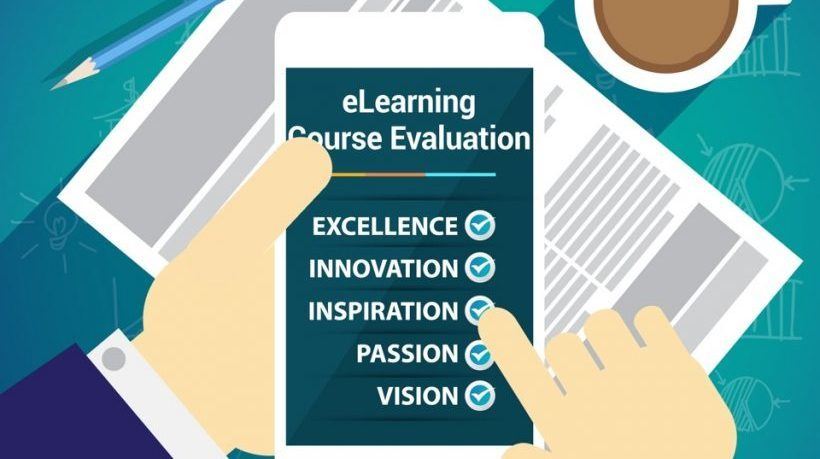eLearning Evaluation: How Much Do You Know About It?
Your custom eLearning solutions are incomplete without careful and clever evaluation methods in place. You see, unless your users know their progress and understand the areas they are lacking in; there is no point in carrying on with the learning process.
What Is The Key To A Successful eLearning?
Of course, it is the evaluation, or quite frankly any course or eLearning program you are going to enroll in will be absolutely pointless without any robust evaluation methods in place. These methods will focus on continuous improvement and also help you in the following:
- Determine the quality of the eLearning module
- Assess the effectiveness of the program
- Measure and compare results based on continuous improvement
- Understand the pros and cons of a particular eLearning course, module or program
- Help students make improvements
Types Of eLearning Evaluations
eLearning evaluation is critical to students’ success and also clarifies a rather prevalent myth attached to it. Which is that it is done typically after the course is completed. Your custom LMS development company will tell you that this is entirely wrong! Evaluation can and should occur in various stages of the program such as:
- Before the eLearning begins, you will need an assessment of the program to efficiently plan eLearning.
- During the eLearning process, you will need to undertake formative evaluation procedures to ensure constant improvements.
- After the eLearning is complete, summative evaluation is done primarily to determine the outcomes.
Online classes, tutoring, eLearning modules or custom eLearning solutions often involve a lot of elements. There is a fun and enjoyable classroom environment which is obviously virtual but there is no lack of applicable content here. Yes, online training sessions are very attractive and often come with impressive graphics and animations. These are able to teach meaningful information but their effectiveness can only be measured if and when you have the necessary tools for the job.
What Is Your Reaction To Learning?
What is the level of the student's satisfaction? How will you ascertain that? What is their level of interest and how much do students find the content they are studying to be engaging? When you are able to define this, you can effectively understand just what learners think and feel about the training module or the eLearning course. Today, we have a lot of learning app development models and tools that let us measure their engagement which is very essential to the success of any eLearning course. The degree up to which the students or participants are actively involved in the course will define its success up to a very large extent and will also prove its relevance. Now how come relevance becomes a part of this? Simple! Relevance is another key here. If the course they are enrolled in is not relevant or isn’t what the participants seek, they will not have any use for it when they are actually at their job looking to apply what they have learned in their training.
Therefore, it shows once again just how important the evaluation of the eLearning course becomes. Need more rationale? A carefully done evaluation also helps you measure how students or participants react to a given training program or activity.
The Mode Of Evaluation
You know the best way to evaluate the success or progress of an online training course is to gauge the reactions of the students. You will need to conduct surveys through feedback forms and questionnaires. These will help you determine the scales of satisfaction on which to base your survey on, in the first place. You can ask the students to place the course effectiveness under categories such as: excellent, very good, good, fair or poor. However, you will need to properly design evaluation tools first because they tend to be poorly created for their purpose, and more often than not fail at the function by being unnecessarily lengthy and difficult to use. It's also very easy to ask the wrong questions. This can lead to collecting wrong and irrelevant data that, again, is not useful at all. So, what tools of eLearning evaluation are you going to pick today?








